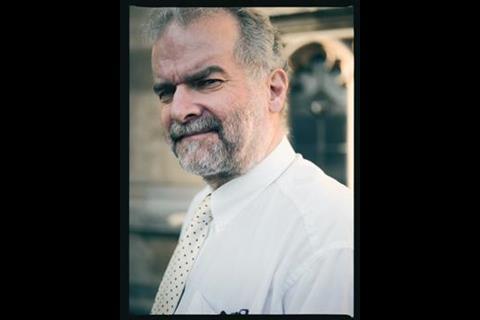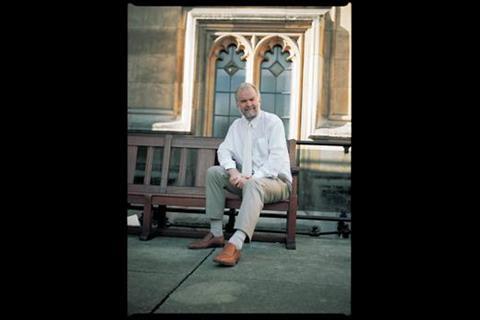Colin Challen has a mission. "I think my most important task is to increase the sense of urgency about tackling climate change," says the 52-year-old Labour MP for Morley, Middleton and Rothwell.
It would be easy to dismiss such a statement as posturing. Dressed in brown pinstripe, Challen hardly looks the part of eco-warrier - despite the silver wind turbine badge pinned to his lapel. Nevertheless, he is one of the few MPs actually trying to force the government to take action on global warming.
"I think we have to acknowledge that we don't have a period of time to think about how we might respond to global warming," he says, citing the melting Ross Ice Shelf and northern ice cap. "We have to respond now."
So far the Leeds-based politician has attempted to introduce two separate parliamentary bills intended to compel both individuals and nations to reduce their carbon emissions. He is also a founding member and chair of the All Party Parliamentary Group on Climate Change, and a member of the Environmental Audit Committee. Challen is doing his best to tackle a titanic issue. Now he wants others to join him.
He says organisations such as CIBSE have a vital role to play. "CIBSE should not fear getting involved in the political debate; they should try to force the pace of regulation and legislation a lot harder than I think they have been in the past," he says.
Individuals can make a difference too. Challen wants as many people as possible to join his current project. Called ‘25/5 Challenge', it challenges MPs - though all are welcome to join - to reduce their own carbon emissions by 25% over five years.
To his credit, Challen is close to getting 50 MPs - including some cabinet ministers - to pledge their support. "It is about leading by example," he says, "and demonstrating that it is possible to lead civilised lives without depending on the level of energy consumption we've grown used to in recent decades."
In his own effort to meet 25/5, Challen has so far swapped his 1.4 litre Ford Escort (160-170 grams of carbon per kilometre) for a Smart Car (115 grams per kilometre); reduced his annual mileage from 8,000 to 6,000 miles; and swapped his electricity supply to a renewable tariff.
Radical roots
Challen's campaigning can be traced back 20 years to his days as a city councillor in Hull and his involvement in the ‘nuclear free local authorities movement'. "The movement was about freedom from nuclear weapons, nuclear power and nuclear waste," he says. "It was how my environmental attitude was formed." After Hull, he spent a stint as the Labour party's Leeds area organiser, where he gained a reputation as an enforcer of Labour leadership.
Later he became a self-employed writer and researcher, before being elected to Parliament in 2001, and beginning his passionate campaign on global warming.
Challen's sense of urgency about global warming was given alarming credence with the recent claim by leading environmental scientist, professor James Lovelock, that the planet has already passed the point of no return for climate change.
Challen agrees. "Global warming is already under way," he says. However, he qualifies this by adding: "It's a question of how you define the ‘tipping point'." If you use The International Climate Change Task Force's target of 400 ppm for carbon dioxide in the atmosphere, we're already close to - or at - the point of no return; whereas if you use the "politically acceptable" 550 ppm figure of the UK government's chief scientific adviser David King, we still have a little time left.
But Challen worries it will be difficult not to exceed even King's optimistic figure of 550 ppm of carbon dioxide. "I'm not even sure we are going to be able to slow growth to that level of emissions in the timetable we have," he says.
My view is that voluntary action on climate change will never go far enough, fast enough
He would like to see the government take a far more hardline approach to making people cut carbon emissions. "My view is that voluntary action on climate change will never go far enough, fast enough," he says, referring to a Mori poll as evidence. The poll showed that 91% of the population are aware of climate change - but only 8% said they'd initiate their own actions to prevent it. However, more than two thirds of those surveyed (69%) said they'd act if the government told them to.
Challen's solution is for the government to involve everybody in the fight against global warming through using a system of carbon rationing - an approach for which he has been campaigning for some years. His Domestic Tradable Quotas (Carbon Emissions) Bill was put before Parliament in July 2004 as a private members' bill under the 10-minute rule.
Its concept is simple - it is also promoted by the Tindall Centre for Climate Change Research and the Royal Society of Arts, which has obtained a £60,000 grant for further research into it. It would work by placing an annual limit on the amount of carbon dioxide the UK can emit. The permitted emissions making up this limit would then be divided equally, and free of charge, in the form of tokens among all UK citizens.
The tokens could be used to buy fuel or electricity. Those with high consumption would need more, and could buy them from those who used less.
The bill would have forced the electorate to radically alter their high-mileage budget-airfare lifestyles; needless to say it never got to a second reading. But Challen was not left despondent: "It was a good way of promoting the issue at the time," he shrugs.
And he still is promoting the initiative. His next target is Scottish MPs, for whom he is hosting an event on 10 March at the Scottish Parliament, along with Napier University, to promote the quotas idea.
In November 2005, Challen tried to tackle global warming on an international level, with his ambitious Climate Change (Contraction and Convergence) Bill.
The idea behind this bill was that every country's carbon emissions needed to have contracted and converged, on a per capita basis, to the same figure by 2050.
Countries that are already developed would need to start reducing their emissions now through cleaner technologies, and through buying carbon credits by investing in green technologies in developing countries. "It is predicated on the idea that there will be equity in the way we converge," Challen says.
Given his history as an anti-nuclear councillor, it is unsurprising that one carbon-saving solution Challen will not be promoting is nuclear energy. "The thing with nuclear is that it is a big solution that requires a big investment, and it cannot deliver anything for 10 years - and we don't have 10 years to waste," he says, a hint of a Yorkshire accent betraying his Scarborough roots. "And there is only enough energy-rich Uranium left for the whole world, at current demand, for 50 years."
Challen comes across as that rare thing - a politician who genuinely believes in what he is campaigning for. Sad, then, that his endeavours to encourage positive commitment to finding a solution to climate change are unlikely to find favour in Tony Blair's cabinet. Perhaps he will have more luck when the prime minister's successor takes over. Time will tell.
Challen's 25/5 Challenge
You can teduce your carbon footprint by 25% over five years. Here's how...
- Work out what your current emissions are using one of the web-based calculators such as www.carbonneutral.com/calculators or www.safeclimate.net/calculator
- Identify the ways in which you can reduce these emissions. (See www.est.org.uk or www.greenconsumerguide.com)
- Transfer your electricity to a 100% renewables-based supplier (www.good-energy.co.uk)
- Instal CHP (www.micropower.org.uk), or look into producing your own power at www.clear-skies.org or www.bwea.com/index
- Reduce air travel by cutting out short flights to places accessible by train
- Try to reduce car use by using a smaller car or car sharing (www.freewheelers.co.uk), (www.nationalcarshare.co.uk)
Source
Building Sustainable Design
Postscript
To support Challen's Domestic Tradable Quotas initiative or to take part in the 25/5 Challenge, log on to www.colinchallen.org
























No comments yet